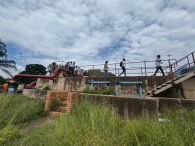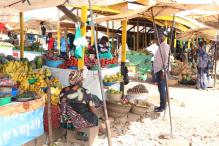In a world grappling with the COVID-19 pandemic for two years, gender disparities persist in the global vaccination response, with only 13% of countries providing sex-disaggregated vaccine data, according to a correspondence piece published by Tiffany Nassiri-Ansari (UNU-IIGH), Phionah Atuhebwe (WHO), Akosua Sika Ayisi (Ghana Health Service), Sarah Goulding (Australian Federal Government), Mira Johri (Université de Montréal), Pascale Allotey (UNU-IIGH), Nina Schwalbe (UNU-IIGH and Spark Street Advisors) in the Lancet Journal. This piece sheds light on the profound challenges women face, including limited access to reliable vaccine information, caregiving responsibilities, and mobility obstacles.
Notably, the report highlights innovative solutions that are making a difference. For instance, Ghana's pioneering community-based approach brings vaccines directly to women where they work and reside. India's digital-first strategy, if augmented by gender-specific insights, could further enhance inclusivity in vaccination campaigns.
To address these issues, the Lancet piece calls for a three-fold approach: mandating sex-disaggregated data collection, advocating for its widespread reporting, and actively involving women-led and girls-led groups in program development. These community-driven initiatives, armed with data-driven insights, play a pivotal role in making more informed decisions. As the world continues to battle the pandemic, prioritizing gender equity in vaccination efforts and ensuring robust data systems are fundamental steps toward achieving a more equitable response.
For a comprehensive understanding of these critical findings, please read the full report in the Lancet Journal here.



